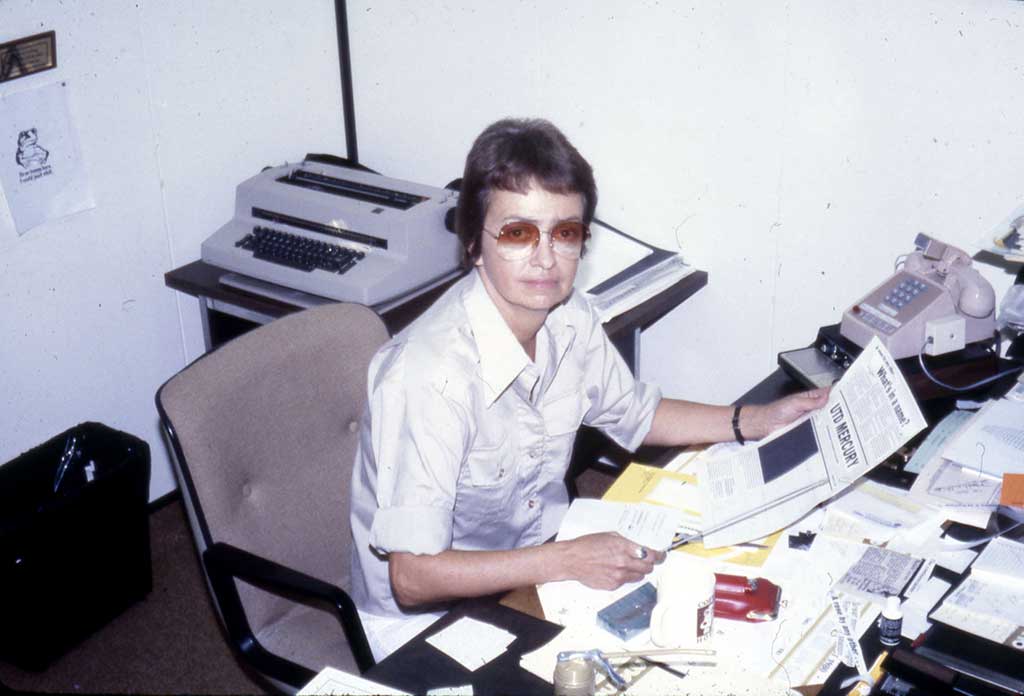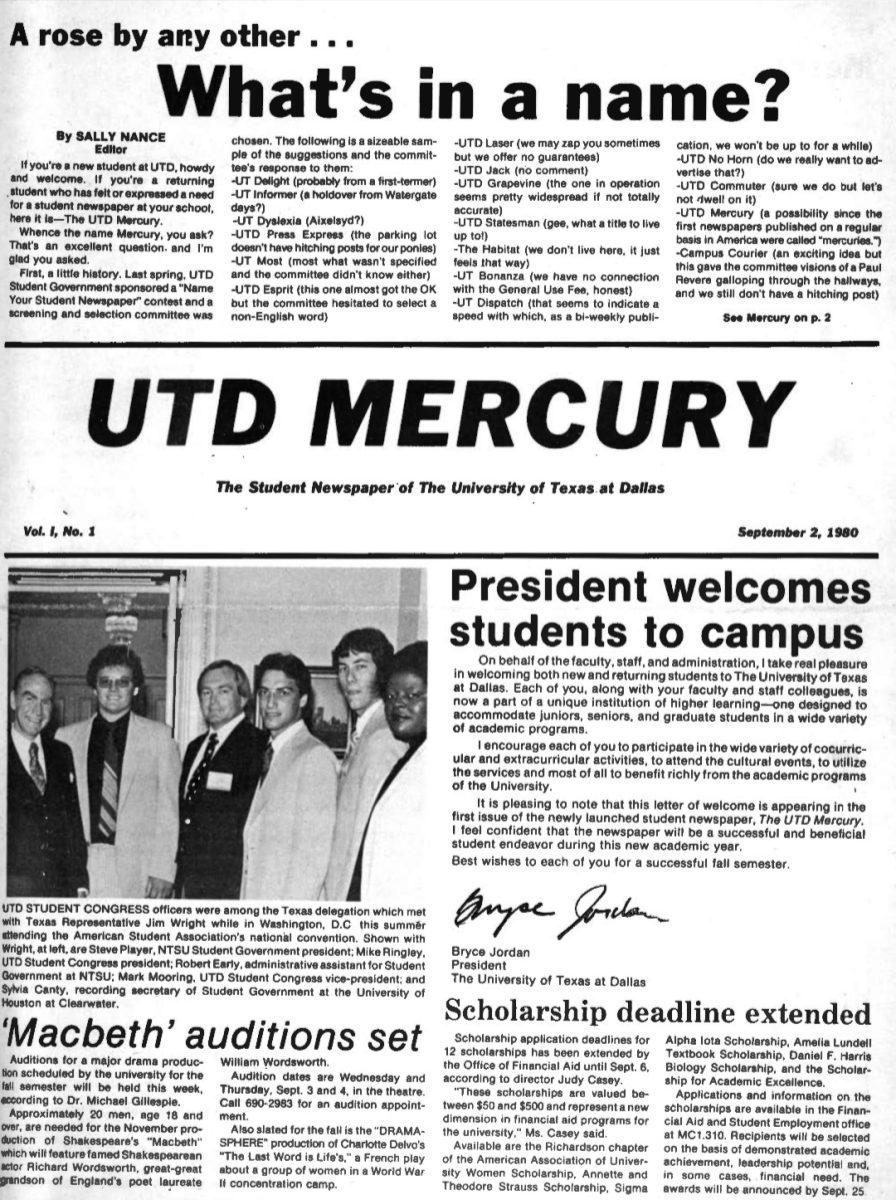UTD Student Media, often shortened to StuMe, is a Student Affairs division composed of four paid student-managed organizations that give Comets valuable experience in the fields of print, video and radio journalism. But how did StuMe come to be?
The earliest mentions of Student Media date back to the spring of 1980, when the Student Government sponsored an event titled the “Name Your Student Newspaper” competition. Students eagerly submitted titles for the future publication, including UT Delight, UTD Esprit, Campus Courier, UT Dyslexia, UTD Laser and UTD Mercury. While UTD Esprit and Campus Courier were the top running names, the selection committee was attracted to “The Mercury” due to its affiliation with the Greek god Hermes, the winged messenger of the pantheon.

On Sept. 2, 1980, students found new wooden kiosks and market shelves stacked with the first edition of The Mercury Newspaper.
The Mercury Newspaper would be the voice of UTD officials and students for decades, covering the latest news, entertainment, research, sports and opinions most relevant to students. It regularly won awards in collegiate press competitions and was nationally recognized in 2021 as the best collegiate newspaper in the US at the College Media Association awards.
In 2002, a new media organization emerged as students tuned into a radio station playing the latest music out of a closet in ECS, which quickly gained the name RadioUTD. The founders of the informal club also created an online blog to update listeners on new albums, local concerts and more. In 2004, Student Affairs expanded the role of Student Media by inviting RadioUTD to officially air out of the Student Union.
However, by 2003, several McDermott scholars departed The Mercury, upset by the way organizations and campus events were covered. They felt that the newspaper was overly dismissive of school organizations and too protective of university admin. Funded by Edward J. Harpham, professor emeritus of political science and former dean of the Hobson Wildenthal Honors College, these students began printing satire editorial magazines which they presented to the public as A Modest Proposal, known today as AMP. The organization was underground until 2008, when it was brought into Student Media and given its own room in a computer lab on the third floor of the McDermott Library.
Later in 2009, Student Affairs invited another student organization into the StuMe roster, making the 2008 film club UTD-TV an official organization; they were given a room across the hall from AMP on the third floor of the library. UTD-TV initially focused on reporting news, but within its first few years it began to focus more heavily on short films, comedies, skits and game shows. It returned to reporting the news in mid-2010 but continued to win awards as one of the most entertaining collegiate television stations.
After Chad Thomas,the senior sssociate vice president to Student Affairs since 2022, was appointed Student Media director in 2010, all four organizations were brought together into one office space, located on the first floor of the Student Union in 1.601. The Mercury and AMPpreviously had a bitter rivalry and often maintained a closed-door policy with each other; this was not resolved until 2015 according to Thomas, and even then, there were still political clashes up until 2020.
“I think that is one of the things that I am most happy about and proud of about my time in Student Media,” Thomas said. “We were able to create a more unified culture and one where I think collaboration and dialogue and mutual support and respect became the norm, even if there wasn’t just uniformity and agreement at every stage of the way.”
The first official collaborative content project hosted by all four groups will begin on Sept. 17 with the reboot of The Mercury Morning News.
Today, StuMe helps Comets develop the skills needed for success in media while also providing opportunities for in-the-field experience and student interaction.
“I think it’s one of the best ways of any student organization or on-campus learning opportunity outside of the classroom that you can do,” Thomas said. “It is so rare to be able to go and say ‘I have no knowledge or skills pertaining to writing, design, content creation, video editing and production, audio work’ and then … come away in a semester being knowledgeable and resourceful in a variety of skill areas and with specialized software and equipment. Suddenly those are marketable, hirable skills that may be paired with what you’re doing in the classroom in ways that you might not have ever thought.”







